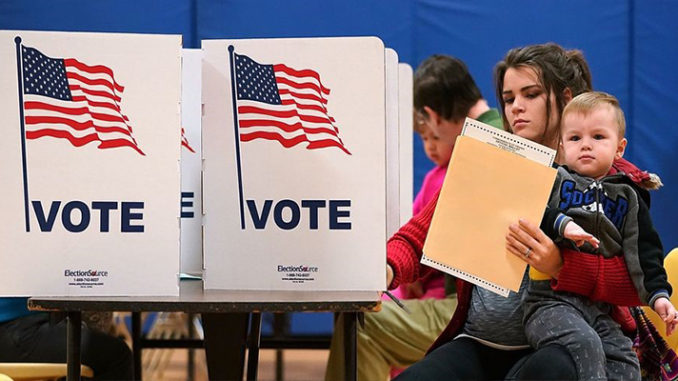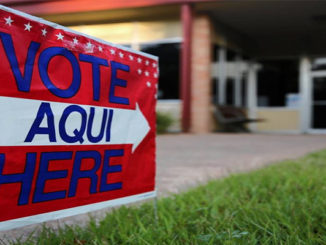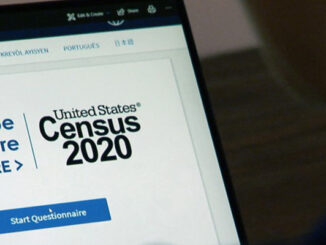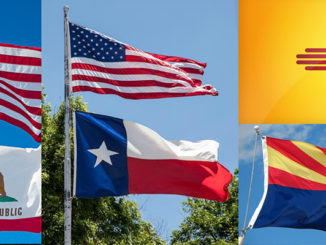
by Jonathan Rauch and Benjamin Wittes
Excerpts from “The Cult of Democratization.”
The American Founders—at least, the prevailing ones—were not populists. They actually defeated the populists of their day, who broadly opposed the Constitution. Drawing upon ample historical experience, they worried that democracies were vulnerable to demagoguery and prone to instability. Although they insisted that republican government required direct public input, they also constrained and balanced that input. For example, the Electoral College, which today is a mere formal and mechanical structure in which the votes of the electors are predetermined by the popular votes of their states, was intended as a firewall against the popular selection of a dangerous or unqualified president. “A small number of persons,” writes Alexander Hamilton in Federalist No. 68, “selected by their fellow citizens from the general mass, will be most likely to possess the information and discernment” needed to carefully vet a president. Expert electors would be advised by the people, but would use their discretion to ensure “that the office of President will never fall to the lot of any man who is not in an eminent degree endowed with the requisite qualifications.”
Writing only a couple of generations after the founding, Alexis de Tocqueville, still the greatest observer of American political culture, was similarly wary of populism. He famously concluded that tyranny of the majority represents the most fundamental threat to the American model. Popular opinion in the United States, he found, sweeps all before it, not only politically but also morally. Regulating and moderating populist influence, he foresaw, would be our democracy’s hardest challenge.
Despite many such warnings, successive waves of political reforms have increased the role of popular participation. The Senate became directly elected; the Electoral College became a rubber stamp; primary elections replaced party elders in the selection of party nominees; states embraced initiatives and referenda; campaign-finance rules sought to democratize and equalize political influence; the political parties’ establishments went into a long, continuing decline. Assessing all those changes and reforms would require a book (actually, many books) and is not within our purview here. The point we wish to emphasize is that, for several generations, reform and rhetoric have been entirely one-directional: always more direct democracy, never less.
Just as important, if not more so, is that the moral valence of participation has, as Tocqueville predicted, swept all before it. Reputable people no longer express the distrust of direct democracy that the Founders consistently emphasized. Instead, what the political scientists Christopher H. Achen and Larry M. Bartels call the “folk theory of democracy” commands broad and usually unquestioning support.2 The folk theory “celebrates the wisdom of popular judgment by informed and engaged citizens”; it assumes that, almost by definition, more public involvement will produce more representative and thus more effective and legitimate governance. In the folk view, the job of elected officials is to identify and embody the public’s wishes, rather than to interpose their own judgment. The folk theory has animated successive waves of populist and progressive reform movements for more than a century, and the narrative it promotes—of a noble and wise public whose will gets frustrated by corrupt insiders—has triumphed to the point where “American political history has come to be celebrated as a long battle between ordinary people and a series of grasping oligarchies thwarting the popular will.”3
Because the folk theory is fundamentally inaccurate, it has a deep tendency to disappoint in practice. The trouble is that when it does so, write Achen and Bartels, the prevalent response is to apply even more pressure to “wrench American political practice into closer accordance” with it. Reformers double down on “efforts … to constrain or even bypass those whom the reformers blamed for their disappointment—professional politicians.”4
The 2016 presidential campaign exemplified the cycle. Populist candidates of both right (Donald Trump, Ted Cruz, Ben Carson, and others) and left (Bernie Sanders) railed against a system “rigged” against the people, and the public punished anyone associated with professional politics. Trump emerged victorious in the electoral vote despite having lost the popular vote by a margin of almost 3 million votes, as well as being substantively and temperamentally less fit for the White House than any nominee in American history. Nevertheless, the Electoral College never seriously considered performing its original failsafe function, and it would have fomented a constitutional crisis had it tried. Effectively, all of the anti-populist buffers erected by the Founders against persons “not in an eminent degree endowed with the requisite qualifications” and against persons with “talents for low intrigue and the little arts of popularity” had been disabled or demolished.5
All of that would be fine if the real world comported with the folk-democracy story. Unfortunately, it does not. To begin with, the movement to push aside intermediaries, such as the smoke-filled rooms where party elders once brokered nominations and the closed committee meetings where members of Congress dickered, has not produced greater public confidence in the government’s effectiveness or representativeness. To the contrary, public trust in the federal government began sinking in the 1960s, crashed in the 1970s, and in the present century has bumped along at rock-bottom lows.6 In recent years, confidence in Congress, the most directly accountable branch, has fallen especially low. The democratizing reforms of the past couple of generations have indisputably failed to prevent or reverse the public’s souring on politics and government, and they may have contributed to it.
Meanwhile, changes reducing the scope of political intermediation have made both campaigning and governing increasingly chaotic. Candidate selection through direct primaries has turned out to advantage parochial, narrow, and extreme interests and politicians, at the expense of relatively centrist or compromise-minded candidates and citizens. Frequently, the parties are bit players in their own choice of nominees. Restrictions on political money flowing to candidates and parties have increased the flow of money to unaccountable outside actors. Intrusive transparency requirements have reduced the scope for candid political negotiations, as has the insistence on transparency in congressional deliberations, a practice typified by C-SPAN.7
Even as experience has cast more doubts on the direct-participation model, scholarly research has amplified those doubts. For example, research on candidate selection has found that party bosses and smoke-filled rooms did at least as well, and probably better, at recruiting and selecting well-qualified candidates, and of ensuring competitive races, as has direct selection in primaries.8 Research on political negotiation finds that transparency rules, while having their value, impose significant trade-offs in the form of reduced space for candor and compromise.9 Research on campaign-finance reforms finds that they have tended to increase polarization by empowering disruptive and extreme outsiders at the expense of more compromise-minded party regulars.10 Other scholarship suggests that the curtailment of backroom horse-trading and pork-barrel spending stripped legislators of important tools to make deals and build coalitions.11 Though individual reforms have both plusses and minuses, the overwhelming trend has been toward disintermediation—reducing the role of parties, professionals, and experts. Evidence is piling up that the cumulative cost has been high.
Perhaps even more damaging to the disintermediating model have been developments in the literature on voter competence—or incompetence. Recent work includes such books as Jason Brennan’s Against Democracy (2016), Bryan Caplan’s The Myth of the Rational Voter: Why Democracies Choose Bad Policies (2007), and Ilya Somin’s Democracy and Political Ignorance: Why Smaller Government Is Smarter (2013 and 2016), in addition to Achen and Bartels’s important Democracy for Realists: Why Elections Do Not Produce Responsive Government (2016). Any of those books will provide a good overview of the literature. Taken together, they and other research in the same vein suggest several unsettling conclusions.
Voters are very ignorant, and always have been. In October of 2015, a survey by Fairleigh Dickenson University found that only a third of respondents could name the three branches of government. Only one of eight could name the three branches, knew that the Republicans controlled the House, and knew that John Roberts was chief justice; a quarter knew none of the above.12 Majorities don’t know who has the power to declare war, the functions of the branches, or who controls monetary policy. The public wildly overestimates the crime rate and believes the government spends more on foreign aid than on Social Security or Medicare. In 2007, more than half said the Constitution establishes a Christian nation.13 Such examples can be multiplied ad infinitum, and they aren’t new. In 1964, only 38 percent knew that the Soviet Union was not a member of NATO, and in 1986, a majority could not identify Mikhail Gorbachev as the Soviet leader.14
Voters are ignorant because they’re rational, not because they’re stupid. Given the infinitesimal chance that their vote will decide the election, and given the considerable time and effort required to get up to speed, voters limit their investment in becoming knowledgeable. Analysts call this phenomenon “rational ignorance,” and because it is rational, it is intractable. “A relatively stable level of ignorance has persisted even in the face of massive increases in educational attainment and an unprecedented expansion in the quantity and quality of information available to the general public at little cost,” notes Ilya Somin.15
Voters are irrationally biased as well as rationally ignorant. If mistakes and misinformation were random, they might cancel each other out, allowing better information and rational judgment to prevail. Unfortunately, biases are systematic, not because voters are stupid but because, being human, they are subject to various kinds of cognitive distortions wired in by evolution. We Homo sapiens engage in motivated reasoning (rationalizing our pre-existing beliefs, often in the face of any countervailing evidence); we overestimate the likelihood of rare but prominently reported events (so-called availability bias); we seek out and overweigh information that confirms what we already believe (confirmation bias); and we’re easily swayed by party and tribal ties, which matter much more than policy briefs and fact-checkers. We are myopic, basing our votes disproportionately on what happens just before an election. We reward and punish politicians for developments they cannot control (e.g., shark attacks and droughts, as Achen and Bartels show). We misattribute actions and outcomes that politicians can control.16 Moreover, voter irrationality, like voter ignorance, is intractable because, paradoxically, it is in one important respect quite rational. Individual votes matter infinitesimally and becoming informed is expensive, and so it makes sense to treat voting as a way to express one’s emotional state, declare one’s group identity, or indulge one’s prejudices. In that respect, voting is less like making a careful policy choice than it is like, as Jason Brennan puts it, “doing the wave at a sports game.”17
Providing more education or information isn’t a solution (though it’s worth doing anyway). Some people, of course, do invest in civic and political self-education, but they tend to do so in the manner of hobbyists or sports fans, using information and reasoning skills as ammunition to support whatever view or group they’re predisposed to support. “The more informed citizens are, the more they become reliable partisans,” writes Lee Drutman of the New America Foundation.18 Indeed, presenting people with true facts often has the perverse effect of making them adhere even more strongly to their own false facts. Because humans are ultra-social animals, wired for group solidarity rather than computational skill, we think, so to speak, with our groups.19 This is not to say that providing better information and education is a bad idea—only that it will not solve the problem. As Lee Drutman writes, “It’s finally time to make peace with a simple fact of political life: Informed, individualistic rationality is a chimera.”20
even if voters were deeply informed and meticulously rational, elections still would not reliably tell us what the public thinks or wants. The literature on voter irrationality and ignorance builds on a related literature called “public choice” (or “social choice”). Dating back to the early 1950s, public choice scholarship has established with mathematical precision that voting methods are manipulable. It also shows that, in most real-world situations, there is no one “right” outcome that is independent of the method of voting used, and so even in principle, you often can’t know what “the public” thinks. Moreover, public choice also establishes that organized minorities can and do “outvote” disorganized majorities, and that latent majorities often fail to assemble in the first place. The upshot of public-choice findings is that voting is often less representative of public sentiment than are other, seemingly less democratic ways of making public decisions—for instance, through legislative give-and-take, which can balance many preferences, weigh preferences’ relative intensity and merit, and control the timing and sequencing of key decisions. “This does not mean that direct democracy should play no role in policymaking,” Maxwell Stearns writes. “But it does mean that it is important to consider the anti-democratic features of direct democracy rather than assuming that the mere fact of electoral voting renders the process democratic.”21
Even if one takes all this evidence together, one need not go as far as Achen and Bartels, who conclude that the folk theory of democracy is “in tatters”; that, “for thinking about democracy, rational-choice liberalism is a scientific error”; and that “election outcomes turn out to be largely random events from the viewpoint of contemporary democratic theory.”22 At a minimum, however, the evidence compels conclusions that are uncomfortable for those who see more participation as an answer to the country’s political problems. Most voters are rationally underinformed, irrationally biased, and have no compelling reason to be otherwise; elections provide little by way of substantive guidance for policymakers; and, even on its own terms, direct democracy is often self-defeating and unrepresentative. Thus, there is no particularly good reason to believe that more participation will improve government performance, better represent the public interest, or make the public happier.
Assuming this is correct, it is tempting to conclude—as the Founders did—that the entire modern enthusiasm for expanding the franchise is a bad idea. Why not reinvigorate the electors in the Electoral College, restore the selection of senators to state legislative bodies, and limit voting to those the system can trust to make responsible decisions? A modern system, of course, would not limit the franchise according to invidious factors like race, gender, and wealth, and to avoid discrimination, it might not limit it at all. But well short of suppressing votes, perhaps we could at least do away with all this fretting about low voter participation. Perhaps we might at least curtail all these energetic efforts to encourage participation among those who rationally choose to limit their participation—or who opt out altogether. After all, don’t such efforts merely encourage the lowest-information voters to increase their share of the electorate? If voters are, as we suggest, not merely ignorant but rationally ignorant, and if they are uneducable, perhaps the answer is to consider it a blessing if they stay home and watch TV.
Our point, however, is not that democratic participation is worthless. For one thing, the belief that limiting the quantity of voter participation would improve the quality of participation assumes some magic formula for deciding which voters are unworthy. There is no such formula, of course. In fact, there is no reason to believe that cognitive bias and motivated reasoning correlate with any
discernible demographic category. If anything, wealthier and better-educated voters are often more, rather than less, subject to partisanship, systematic bias, rationalization, and overconfidence in inaccurate beliefs.
Moreover, quite apart from the profound equity gains associated with the expanded franchise, broad voter participation provides a vital good to the political system that is not replaceable by other means: It provides the consent of the governed and the renewal of that consent on a regular basis. The broader the cross-section of people voting, the more meaningful the electorate’s grant of consent becomes. Voters are not policymakers, but they are the force that gives authority to policymakers. Persistently low rates of voter turnout erode that authority.
In other words, we are not arguing here for complacency about voter participation, much less for restricting or limiting voting. We are arguing that participation is not enough, and that overinvesting in it neglects other, more promising paths. And specifically, we want to suggest that measures seeking to involve voters substantively in decisionmaking above and beyond choosing representatives will generally backfire, often against the values that those measures are designed to protect. In other words, the act of voting need not include voting on policy matters. It need not include the selection of candidates on whom to vote. And it need not include elaborate mechanisms for voters to stay involved once they have left the voting booth. Most importantly, it should not involve direct and immediate mechanisms of accountability by elected officials for individual decisions that they make. The act of voting is a delegation of authority, not a game of “Mother, May I?” in which the elected official should have to pause at every move to make sure the voter has okayed it.



